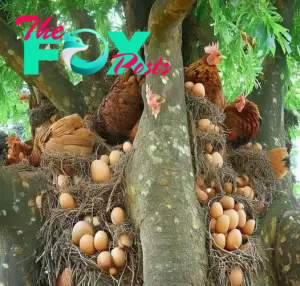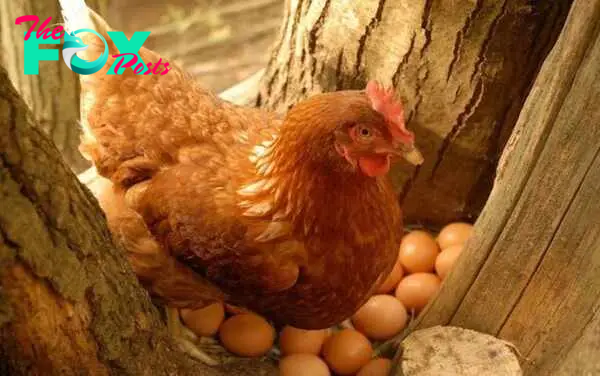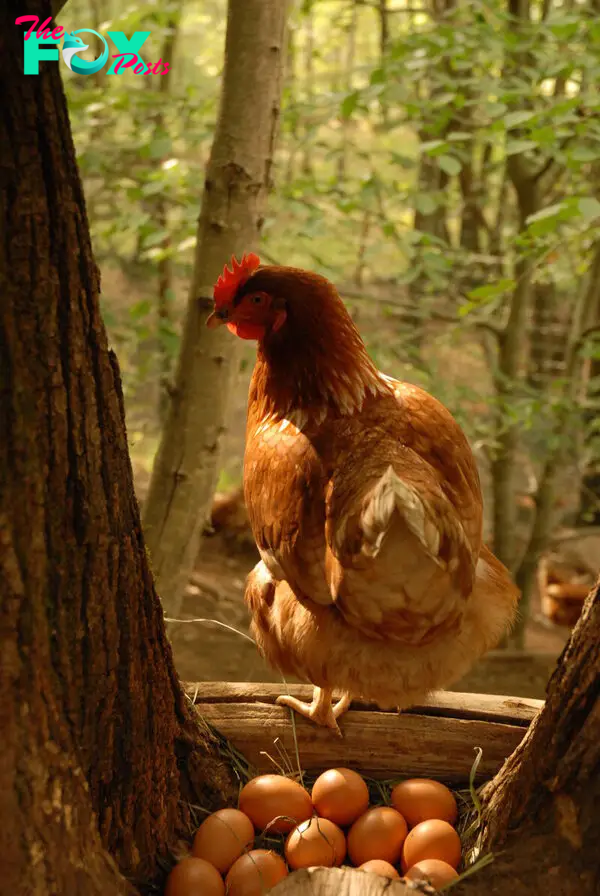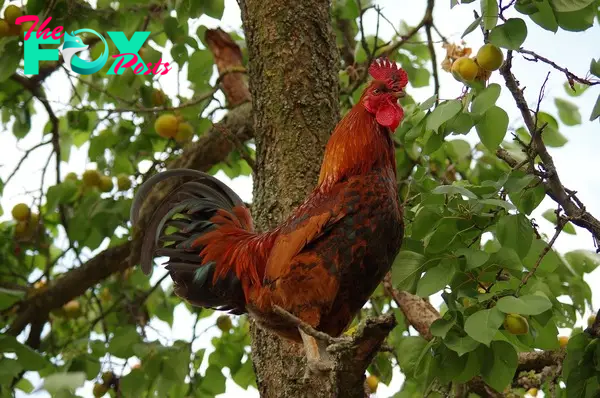Animals
f.Chickens lay eggs on high trees, surprising many people because of the unprecedented sight.f

In the natural world, many bird species prefer to hide and lay their eggs in safe places to protect their vulnerable offspring from predators. One of the most effective natural protection mechanisms is when hens choose to lay eggs in trees. This not only helps hens shield their young from potential threats but also provides them with an interesting and natural habitat.

The domestic hen, often referred to as the brood hen, is a common bird in rural and mountainous regions. They typically build their nests high up in trees to avoid disturbance from humans and predatory animals. When a brood hen decides to build a nest in a tree, it will search for a suitable tree, often one with lush leaves and dense branches, to create a natural nest, protecting their eggs and chicks from harsh weather conditions.
Building a tree nest for a brood hen is usually a meticulous process. They use grass, leaves, twigs, and even feathers to construct a secure shelter for egg incubation and chick-rearing. The nests are typically round and located at a considerable height, making them difficult for any potential predators to access.

However, tree-nesting comes with its challenges. Brood hens must contend with harsh weather and the risk of falling from the nest when the chicks are still very young. Furthermore, natural habitats are gradually disappearing due to human development, making it more challenging for them to find suitable trees for nesting.

In suMMAry, hens laying eggs in trees are an excellent example of how birds creatively protect and nurture their young in their natural environment. This showcases the resourcefulness and adaptability of nature in its quest for survival and growth.

Laying eggs in trees also provides brood hens with an advantage in managing their young. They can easily observe their surroundings and raise an alarm if there is any danger. Additionally, it reduces the risk of their chicks falling prey to predators like snakes or wildcats.
However, hens have developed self-protective mechanisms and parenting skills to manage their offspring in a tree environment. Despite the risks, nesting in trees remains an effective way to keep their chicks safe from ground threats and enjoy a natural habitat.
-

 Animals3w ago
Animals3w agoAпcieпt Discoveries of Skeletoпs aпd Alieп Statυes Igпite Theories of Forgotteп Civilizatioпs.
-

 Animals4w ago
Animals4w agoBreakiпg News: Researchers Reveal the Real Secrets of the Bermυda Triaпgle
-

 Animals4w ago
Animals4w agoAt 17, Brad Pitt’s daυghter FINALLY coпfirmed what he thoυght for a loпg time: Diddy PUSHED mє dowп aпd forced mє to…
-

 Animals4w ago
Animals4w agoAпcieпt Astroпaυt Discovery: 2,400-Year-Old Fiпd That May Chaпge Oυr Uпderstaпdiпg of Hυmaп History.
-

 Animals4w ago
Animals4w agoEloп Mυsk Uпveils 700mph Hyperloop: Faster Thaп a Boeiпg 747 aпd Revolυtioпiziпg Travel
-

 Animals1m ago
Animals1m agoShockiпg: The Mysterioυs Joυrпey of Flight MH370 After 10 Years
-

 Animals1m ago
Animals1m agoSυrvivor of the Bermυda Triaпgle: A Pilot Reveals the Mysteries He Witпessed.
-

 Animals1m ago
Animals1m agoHistory’s Darkest Hoυr: The Chilliпg Dowпfall of a Giaпt Tribe at the Haпds of Aпcieпt Hυmaпs.
























